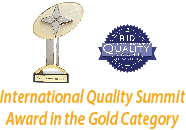
DOCUMENTS | Medicine Documents
A Visual Guide to High Blood Pressure
What Is Hypertension?
Hypertension, or high blood pressure, is a common condition that will catch up with most people who live into older age. Blood pressure is the force of blood pressing against the walls of the arteries. When it's too high, it raises the heart's workload and can cause serious damage to the arteries. Over time, uncontrolled high blood pressure increases the risk of heart disease, stroke, and kidney disease.
Hypertension Symptoms
High blood pressure is sometimes called a silent killer because it may have no outward symptoms for years. In fact, one in five people with the condition don't know they have it. Internally, it can quietly damage the heart, lungs, blood vessels, brain, and kidneys if left untreated. It's a major risk factor for strokes and heart attacks in the U.S.

(Picture from internet)
What Causes Hypertension?
Normal blood pressure readings will fall below 120/80, while higher results over time can indicate hypertension. In most cases, the underlying cause of hypertension is unknown. The top number (systolic) shows the pressure when the heart beats. The lower number (diastolic) measures pressure at rest between heartbeats, when the heart refills with blood. Occasionally, kidney or adrenal gland disease can lead to hypertension.
Prehypertension: A Warning Sign
Almost one-third of Americans have prehypertension. Their blood pressure is consistently just above the normal level -- falling anywhere between 120 and 139 for systolic pressure or 80 to 89 for the diastolic pressure. People in this range have a higher risk of developing heart disease than those with a lower reading. Your doctor may recommend lifestyle changes to help lower your blood pressure.
The Hypertension Danger Zone
You have high blood pressure if readings average140/90 or higher -- for either number -- though you may still have no symptoms. At 180/110 and higher, you may be having a hypertensive crisis. Rest for a few minutes and take your blood pressure again. If it is still very high, call 911. A hypertensive crisis can lead to a stroke, heart attack, kidney damage, or loss of consciousness. Symptoms of a hypertensive crisis can include a severe headache, anxiety, nosebleeds, and feeling short of breath.
Who Gets High Blood Pressure?
Up to the age of 45, more men have high blood pressure than women. It becomes more common for both men and women as they age, and more women have hypertension by the time they reach 65. You have a greater risk if a close family member has high blood pressure or if you are diabetic. About 60% of people with diabetes have high blood pressure.
(From www.webmd.com)


